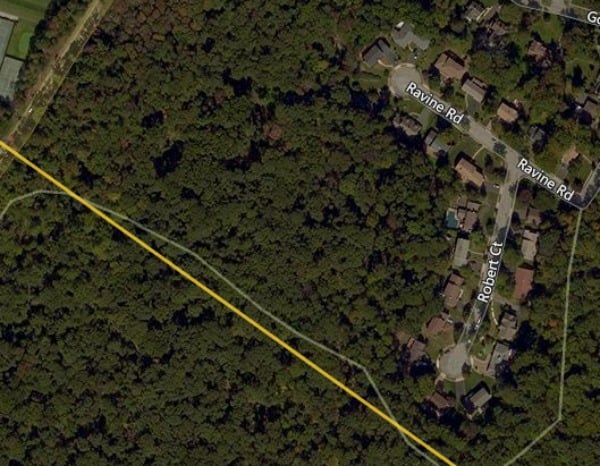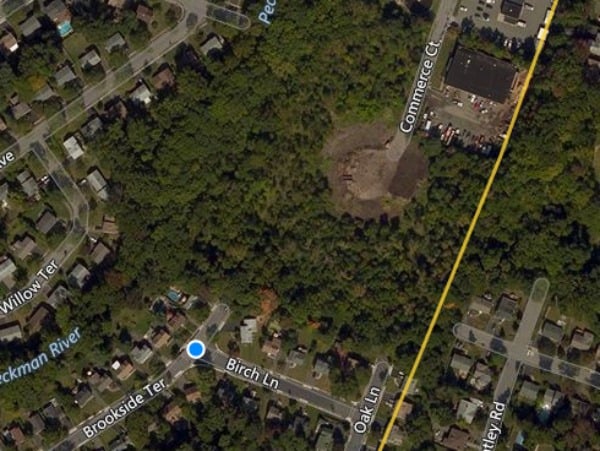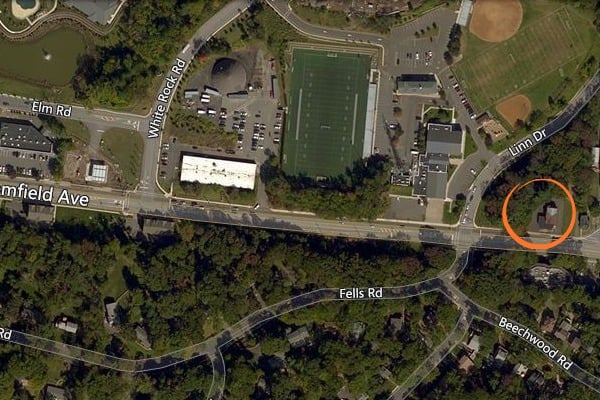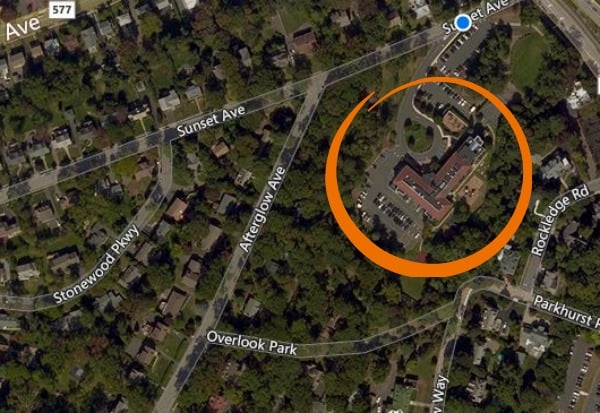
The Verona Town Council disclosed on Monday night that developers are considering affordable housing construction on four sites in Verona: the former Poekel Travel Bureau office near the Verona Community Center, the former Children’s Institute site on Sunset Avenue, a private property now used as the Verona leaf dump on Commerce Court and a heavily wooded lot on Mount Prospect Avenue at the edge of Eagle Rock Reservation.
The Council devoted nearly two hours of its September 11 meeting to affordable housing after residents abutting the Mount Prospect and Commerce Court properties received a letter from South Orange developer Roger Kruvant stating that he is asking the New Jersey Department of Environmental Protection to establish the boundaries of wetlands on them. There are substantial restrictions to developing wetlands sites.
Like most municipalities in New Jersey, Verona has been dealing with the issue of affordable housing since the first so-called Mount Laurel decision was handed down in 1975. Mount Laurel, a suburb of Philadelphia, had been sued for blocking construction of low-income housing. The three court decisions on the case have obligated New Jersey communities to make sure that their zoning makes it possible for a “fair share” of their housing to be accessible to people who are less well off.
Verona has twice met its Mount Laurel obligations thanks to the 159 units in the senior citizens building at 100 Hillwood Terrace. “We have never been out of compliance,” said Brian Giblin, a lawyer with Oradell-based Giblin & Gannaio who is working with Verona on affordable housing. “We went into round three with a surplus.” Giblin and Verona planner Jason Kasler both addressed the Council meeting.
The pair also disclosed that Verona went to court two years ago to seek relief from any builder’s remedy lawsuits. This is legal action by a property developer looking to force a municipality to permit construction, usually of a large housing development. Verona received immunity from these suits and continues to have it.

Past decisions on affordable housing had been made by the Council on Affordable Housing (COAH). But the New Jersey Supreme Court essentially stripped COAH of its responsibilities in 2015 and Gov. Chris Christie declined to fill its vacant seats, rendering it defunct and dashing Verona’s hopes for a favorable round three ruling.
The demise of COAH leaves Verona and other municipalities with no clear standard for the number of affordable housing units needed as they negotiate with builders. Kasler told the council that one expert consulted by Verona has said we need 20 additional low-income units, while another has said 120. Fair Share Housing Center, an affordable-housing advocacy group, has pegged our shortfall at a whopping 327 units. (In affordable housing calculations, one bedroom equals one unit. So 10 two-bedroom apartments would satisfy the lowest estimate.) Municipalities are hoping that they can reach agreements with “intervenors”–the legal lingo for developers and affordable housing advocates–that they can live with and not be forced by a court into a project that would be denser than what their zoning would otherwise allow. The Fair Share Housing Center is an intervenor in all Mount Laurel decisions across New Jersey.

Giblin said that Verona has had discussions with all intervenors except Spectrum360, the new name for the Children’s Institute, because it only made its intent to be a intervenor known recently. Spectrum360 operates the property at 1 Sunset Avenue as its lower school for children with autism and an upper school on Route 10 on the Livingston-East Hanover border. It also has a facility for its high school graduates in Whippany.
No one yet knows what any of the intervenors will try to build in Verona, a prospect that clearly worries town officials and the many Afterglow area and Brookside Terrace residents who came to the meeting. No building would be solely affordable housing–each must be a mix of market rate and lower income units–but any additional construction in a town as fully built as Verona has the potential to burden services and infrastructure.
“The courts won’t look at the [impact on the] school system but we are,” said Township Manager Matt Cavallo. “We have started talks with the Board of Education about the impact on all schools.” Cavallo said the he is also looking into the impact on traffic and emergency services, and has had discussions with Cedar Grove and Montclair because the Kruvant sites abut these towns.
“A developer wants to develop as much as they can on a piece of property and we are continually looking at ways to push down development,” said Councilman Alex Roman. “The cost of servicing high density housing is greater than any revenue we would get from them.”

Before coming in front of the Town Council for approval, any proposed development would have to go through a review by Verona’s zoning authorities, either the Board of Adjustment or the Planning Board, a process that would take months, if not years. These boards would take a look at the demand on services and the wetlands implications of development. Elizabeth Perry, a Robert Court resident, told the Council that she runs four sump pumps in her home all the time, 365 days a year, and replaces a pump every six months. “I am completely consumed with the environmental impact,” she said. “Our houses are sinking every year.”
Neil Miller, another Robert Court resident, asked the Council to focus on the big picture. “I would ask that you make it clear as you are talking to every one of the individuals who you speak with in this township,” he said, “that this is not about three or four locations in the township. This is about the entire township. The effects that we are talking about, whether it be traffic, schools, cost, taxes, all those things. What tends to happen is, ‘it’s not in my backyard’, so it doesn’t affect me. If you can be our voice for that as well, that would help immensely.”
The affordable housing discussion begins at the 1-hour 11-minute mark in the video below. Verona has put a Q&A on affordable housing and other information on its website.

